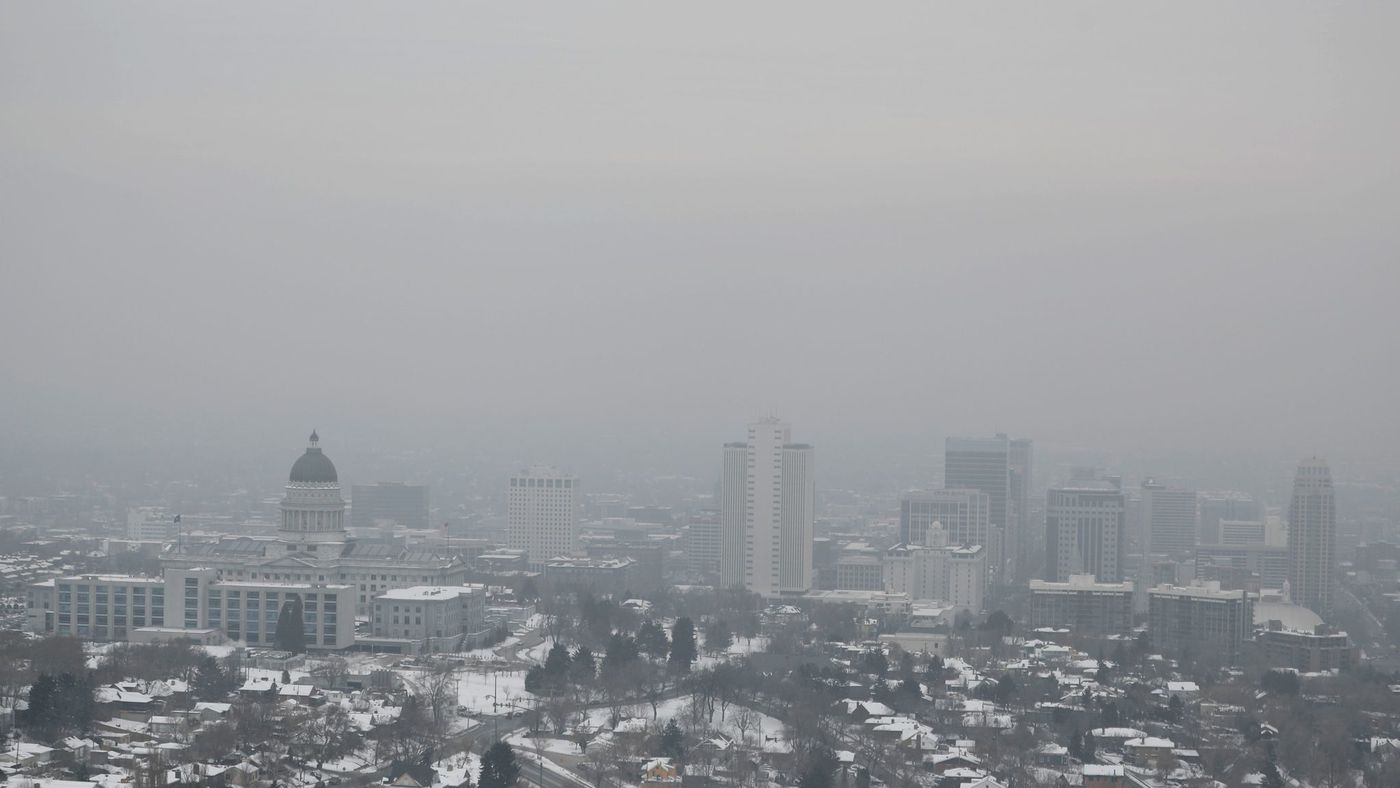Blog Post
Insight: Who is Responsible for Clean Air in Utah?
By: Juliette Tennert
As residents of Utah, we are all contributing to the problem of air quality, and we must all be part of the solution. This was the main message from Thom Carter, the Executive Director of the Utah Clean Air Initiative (UCAIR) at the March Newsmaker Breakfast at the Kem C. Gardner Policy Institute.
Carter explained during his visit that air quality is a paramount issue in Utah, with ramifications for the economy and public health of everyone in the state. While our air quality has certainly improved in recent years, Carter was optimistic that we can still do better. As a community, we should be seeking the next step toward improved air quality. Utah is fortunate to have, along with UCAIR, a number of organizations and advocates dedicated to leading the way on this issue, including the bipartisan Clean Air Caucus on the Hill and the Salt Lake Chamber. Business representatives from a variety of industries have expressed concerns that poor air quality will keep new business away from the Wasatch Front, prompting the Salt Lake Chamber to list air quality as one of its 10 legislative priorities for the 2018 session.
Carter argued that while the unique geography of the state means we are never going to stop having inversions, we can change what goes into the air during an inversion. He cited data from the Utah Department of Environmental Quality that 48% of pollution during inversion days come from mobile sources such as motor vehicles, with 39% coming from area sources such as houses and businesses, and 13% from single identifiable industry sources. Carter encouraged the state to look at these numbers in a positive way — they show that such a large percentage of pollution sources are within our reach to control.
UCAIR has identified a number of solutions we can work toward as a community. Carter explained the efforts to increase usage of Tier 3 fuels, which are “hyper clean” and result in much less pollution emissions. More fuel efficient vehicles on Utah roads, with or without Tier 3 fuel, will also make a large difference. Unfortunately, these solutions will take years to become common enough to make a large difference on the air quality. According to Carter and UCAIR, the most positive changes we can make to our air quality is personal behavior change. For example, we can limit the frequency and distance we drive. We can be thoughtful about the kind of homes and businesses we are building and ensure that they are made with high environmental standards. We can improve and encourage usage of public transit.
Carter concluded with the optimistic thought that while the problem is a large one, we can each individually be part the solution. There is hope for the future: if any state can come together to make meaningful change on such a complicated issue, it is Utah.
Juliette Tennert is the director of economic and public policy research at the Gardner Policy Institute.

